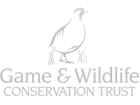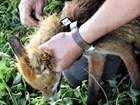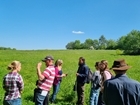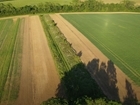Blogs
-

in:
GWCT News Blog
under:
GWCT Wales
, Policy
The Welsh Government held their biennial Taste Wales event on 25-26 October, designed to promote the food and drink producers in Wales to a wider, even global, audience.
-

-

in:
GWCT News Blog
under:
Allerton Project
, Farming
, Policy
Using the term ‘killing’ rather than ‘management’ would not be my choice when discussing the merits of removing one species to protect another. But I chose it here as it refers to the headings of two recent articles in the Guardian that demonstrate the value of control. Both epitomise the challenge that conservation has in addressing public values and attitudes towards the management of pests, invasive species and native predators.
-

-

in:
GWCT News Blog
under:
GWCT Scotland
, Policy
The pressing need to respond to global climate change and biodiversity loss is undoubtedly driving a large part of our Scottish policy work this year, with government consultations, draft legislation, parliamentary evidence sessions and more coming our way.
-

-

in:
GWCT News Blog
under:
Policy
Through its Curlew Trial Management Project the RSPB concluded that government-funded lethal predator management as part of a holistic ELMS package for breeding wading bird conservation is unlikely to lead to localised population recovery. The GWCT’s own research and practical experience contradict that conclusion, so it is helpful to look at why that is.
-

in:
GWCT News Blog
under:
Policy
The extreme wildfire events around Europe and the latest State of the UK Climate report from the Met Office are a stark reminder of the effects of climate change. For many years the risk of wildfire in England was rare; now, due to climate change, it is increasing year by year. Wildfire has been considered a climate risk since 2012 and therefore addressed in the national adaptation programme.
-

in:
Farmland Ecology Blog
under:
Farming
, Farmland Ecology
, Policy
As the BEESPOKE project draws to a close, there are a number of crucial messages to take away. Pollinators, like many living creatures, need food, shelter and somewhere to nest. The need for floral diversity to provide pollinators with food sources that suit them is a key point around which the BEESPOKE project was largely based.
-

Get the Latest News & Advice
Join over 100,000 subscribers and stay updated on our latest advice, research, news and offers.
*You may change your mind any time. For more information, see our Privacy Policy.